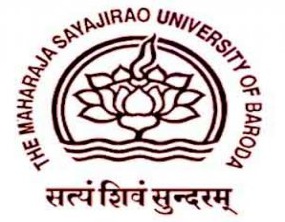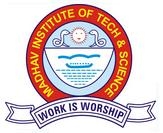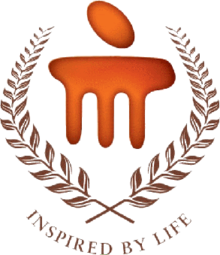![Maharaja Sayajirao University of Baroda - [MSU]](https://images.collegedunia.com/public/college_data/images/appImage/25500_MSU_New.jpg?h=240&w=1000&mode=crop)
Master of Business Administration [MBA] (Finance) From MSU Baroda, Vadodara
| Year | 1 | 2 |
|---|---|---|
| Tution fees | ₹19900 | ₹19900 |
| Total Year Wise fees | ₹19,900 | ₹19,900 |
MSU Baroda Upcoming Application Dates 2024
Important Events
| Events | Dates |
|---|---|
| CMAT Registration Timeline | Tentative Mar 29, 2025 - Apr 23, 2025 |
| CMAT Admit Card Date | Tentative May 06, 2025 |
| CMAT Exam Date | Tentative May 15, 2025 |
| CMAT Result | Tentative Jun 06, 2025 |
Expired Events
| Events | Dates |
|---|---|
| Declaration of Vacant Seats (After Round 2) [ACPC] (MBA) | Sep 02, 2024 |
| Online Deposition of Token Fees and Generation of Admission Letter (Round 2) [ACPC] (MBA) | Aug 28, 2024 - Aug 30, 2024 |
| Online Cancellation of Admission (Round 2) [ACPC] (MBA) | Aug 28, 2024 - Aug 30, 2024 |
Important Events
| Events | Dates |
|---|---|
| CMAT Registration Timeline | Tentative Mar 29, 2025 - Apr 23, 2025 |
| CMAT Admit Card Date | Tentative May 06, 2025 |
| CMAT Exam Date | Tentative May 15, 2025 |
| CMAT Result | Tentative Jun 06, 2025 |
MSU Baroda Cutoff 2024
MSU Baroda, Gujarat ACPC Cutoff 2021
The Gujarat ACPC 2021 cutoff rank for the Master of Business Administration [MBA] (Finance) at MSU Baroda was 8 for the General category.
| Courses |
|---|
Compare |
MSU Baroda Master of Business Administration [MBA] (Finance) Ranking
Outlook Ranking


Course Description
Master in Business Administration with a specialty in Finance is among the more vouched for courses in Management. One of the foremost requirements for a corporate organization to thrive is expert management of capital. Capital Management includes Sourcing, Engaging and Utilizing Capital. With this view, MBA graduates with a specialization in Finance are welcomed in the corporate sector and Banking industry with open arms. The key skill associated with an MBA in Finance is evaluation and production of highest expected value from an asset.
Highlights of MBA in Finance
Following are some highlights of a general MBA Finance course in India-
|
Program Duration |
2 years (4 or 6 semesters) |
|---|---|
|
Number of Management Institutes in India |
3900 approx. |
|
Associated Key Skills |
Capital Management, Asset Development, Fund Management, Risk Management among others. |
|
Eligibility |
A Bachelor’s Degree in any Discipline. Different Institute might have some additional eligibility criteria. |
|
Admission Process |
Entrance Test + Group Discussion / Personal Interview |
|
Top Entrance Exams |
CAT, XAT, NMAT, CMAT, SNAP, MAT etc. |
|
Program Fee |
Varies from 4 Lakh INR to 20 Lakh INR |
|
Average Starting Salary after the Program |
5 Lakh INR |
|
Top Recruiting Companies |
Ernst & Young, Genpact, ICICI, HDFC, HSBC |
Why choose MBA in Finance?
The Management of Finance is a crucial aspect of any business and requires able and expertly trained professionals to determine the why and how aspect of funding and investment. Since no organization can function without professionals to make such calls, MBA in Finance will always remain an in-demand course. Some of the basic skills an MBA in Finance helps in building are:
- Investment Strategy
- Understanding of Local and Global Economy
- Merger and Acquisitions
- Corporate and Financial Risk Management
- Hedge Fund Management
Which is better MBA in Finance or any Specialized Master Degree?
Both courses serve different purposes. While choosing a course it is vital to know the intent of candidate in pursuing the course. An MBA in Finance prepares an individual to for management level jobs in Banking and Finance Sector. Courses in MBA in Finance focus more on the managerial aspects of asset management. MBA in Finance is ideal for students who wish to secure managerial and leading positions in an organization.
A Specialized Master Degree in Finance like an M. Sc. Degree in Finance is more of a technical program. Such programs focus on the technical and operational aspect of Finance and require a candidate to have prior knowledge of Statistics. Degrees like M.Sc. in Finance are suited for candidates who are more interested in the operational functions.
What are the options in Higher Studies after MBA in Finance?
Students who wish to pursue further studies in Business Administration, Fellow Programme in Management or FPM is a lucrative option. FPM is a doctoral program offered by top management institutes. Students who opt for full-time Residential Fellow Program are awarded monthly grants which range from 30,000 INR to 100,000 INR per month. FPM Programs are available at institutes like IIMs, XLRI, ISB, MDI etc.
MBA in finance is the most popular stream in Management studies these days. Course structure and curriculum is something that plays a vital role for making it the most popular among MBA aspirants. Course duration for MBA is two years in all B schools. However these two years are divided either in semesters or in trimesters. Each year consists of two semesters or three trimesters.
Students generally learn core subjects in the first year in all MBA courses. But at the end of the first year, the choice of specialization becomes clear. In the second year, the students take elective or optional courses to specialize in a maximum of two functional areas. So for the first year all the MBA courses have the same curriculum.

Eligibility Criteria
Aspirants seeking admission to 2 years full-time MBA Program should meet the following criteria as specified by the institute.
Academic Requirement
Candidates should have passed a Bachelor's degree in any discipline or its equivalent of minimum three years duration, with at least 50% marks in aggregate from a recognized University.
Entrance Exam
Candidates have a valid score in CMAT.
Course Details
Fee Details:
- MBA Regular Programme Course Fee-
- Rs. 19900/- for Boys per Year and Rs. 15800/- for Girls per Year
Master of Business Administration [MBA] (Finance) Comparison
| MSU Baroda | Parul University | |
|---|---|---|
| Reviews Rating | ||
| Cost To Study | Total Fees ₹39800 (2 Years ) | Total Fees ₹384000 (2 Years ) Hostel Fees ₹77000 |
| Ranking | # Ranked 204/281 by India Today Management Ranks | # Ranked 96/120 by India Today Management Ranks |
| Highest Salary | - | ₹3000000 |
| Average Salary | - | ₹800000 |
| General Course Details | Duration - 2 Years Course Offered - Full Time Total Seats - 40 Mode - Full Time Degree Type - On Campus Course Level - Post Graduation Course Credential - Degree | Duration - 2 Years Course Offered - Full Time Mode - Full Time Degree Type - On Campus Course Level - Post Graduation Course Credential - Degree |
| Eligibility | Graduation with 50% + CMAT | Graduation with 50% |
Course Finder
Search from 20K+ Courses and 35+ Streams
Popular Streams:
Why To Join MSU Baroda - Reviews & Rating
What Students Say?
Likes
- They provide us with a great real-life example of the concept and then give us to solve and learn from that.
- Live Projects opportunities are not from college but one can freely do if he/she gets the opportunity on their own.
These insights are automatically extracted from student reviews
Most Popular Tags
Course Curriculum Overview:
since I was in my bachelor's i decided to get admission in MBA specialization in finance. There is a 3:2 ratio of boys and girls respectively in our colleges. some of the faculty possess Ph.D. in their own subjects and some of them have a master's in the subject. All faculty teach too well so it is easy for students to pass in exam and exam conduct from time to time.
Course Curriculum Overview:
The curriculum is very much upgraded as the faculties regularly include new topics that are needed to study and which are running in the corporate world. The teachers are very qualified and are very helpful in learning new things. The faculty-student ratio is 1:5. Their teaching method is also very simple and the presentations are very easy to understand. The games are taken twice in the semester and continuous quizzes are taken during the classes.
Course Curriculum Overview:
The course curriculum here always gets updated with the latest topics and new updates techniques going in the corporate world. All the faculties are of master degree and doctorate and have good experience in the teaching field. The faculty-student ratio is 1:6. The semester period is around 4 to 5 months and in between the mid-semester exams are taken. Along with regular classes, there is regular case study discussion in different subjects that are taught.
Course Curriculum Overview:
FMS-Baroda offers four Different core specialization of Master of Business Administration (MBA) which are Marketing Management, Financial Management, Human Resource Management, Production and Operation Management. For Each specialization, FMS-Baroda has 5 permeant Faculty and more than 15 External Faculty which all are industry Professionals, Financial Professionals, and professional trainers. FMS-Baroda has audiovisual Classes, computer classes, and an auditorium which become helpful for professional and advance way of study. The course includes four semesters, one summer internship program, two contemporary issue projects, and one grand project in the two-year full-time MBA program.
Course Curriculum Overview:
I heard about the reviews from my seniors and also from the recruiters that the fundamentals taught during MBA are clear to the majority of students. Due to the lack of competitive environment, it becomes one's responsibility to stay updated with the industrial requirements and thus bridge the gap before the placement season. The student ratio is well balanced among different disciplines. The student mix gives a taste of diverse experiences from different social and educational backgrounds. The exams are pretty conceptual eliminating the need of mugging up but at the same time, a plethora of topics are covered so it becomes even more important to strike a balance between the time allotted to each topic. The major part of the learning experience will be during the summer internship and the grand project offered by the college wherein you'll have to work in different corporate organizations which give you vast exposure.
Course Curriculum Overview:
Faculties are very supportive in nature. I choose finance specialization for this program as in this university every faculty is expert in their subject. Most of the professor holds a PhD degree. The student ratio is 50:50. The examination structure and course curriculum are very hard.
Course Curriculum Overview:
Faculty members are highly educated. most of the permanent and visiting faculties are PhD in their respective field. facilities are supportive in each manner. generally, it took 4-5 months for her exams. the difficulty level of exams is moderate.
Course Curriculum Overview:
Faculties in this University are highly qualified and each of them holds a PHD from reputed Universities and the majority of them also have teaching experience exceeding 10 Years. There are generally 8 faculties for teaching 200 students on average. Teaching methods are practical and up-to-date. They encourage practical learning along with theoretical knowledge. They also provide academic and career guidance. They indulge in practical assignments to enhance knowledge and real-life scenario of subjects. Exams are conducted on a timely basis and during internals, there are generally 2 papers in each day with makes it difficult but also helps in dealing with time and high-pressure situations.
Course Curriculum Overview:
I have done my graduation in BBA then I have got the job and then I realized that some of the skill set areas that I still need to improve and can only be improved by doing MBA so I take a decision to go for an MBA. The Faculty and students are so good here if I talk about faculty then they are having so much working experience in a certain corporate field some of them done their ph.d degrees in that area so we have so much to learn from our faculty. They provide us with a great real-life example of the concept and then give us to solve and learn from that. If I talked about the examination if we have learned what faculty have taught us in class then it's easy if we don't then it's kind of hard
Course Curriculum Overview:
Mostly syllabus covers all the current scenarios but the flow of explaining the syllabus is too high..no faculty cares about you understood or not. The ratio of faculty: student is 1:51 Per sem 2 exams i.e internal and external along with assignments for internal assessments
Compare Popular Colleges With MSU Baroda









MSU Baroda Latest News
MSU B.Com Provisional Merit List Out, Get Direct Link Here


MSU Baroda Result 2024 (Released) @msubaroda.ac.in: Check UG & PG Result, Revaluation, Notification


MSU Students to Get Training from IIM Calcutta; Check Details Here

.png?h=78&w=78&mode=stretch)
Discover More Colleges
![Baroda Institute of Technology - [BIT]](https://images.collegedunia.com/public/college_data/images/appImage/15009780471433355716672558202554292870751309970760194n.jpg?h=111.44&w=263&mode=stretch)









![Gujarat National Law University - [GNLU]](https://images.collegedunia.com/public/college_data/images/appImage/25489_GNLU_App.jpg?h=111.44&w=263&mode=stretch)


![Maharaja Sayajirao University of Baroda - [MSU]](https://images.collegedunia.com/public/college_data/images/logos/col28214.jpg?h=71.17&w=71.17&mode=stretch)


 “
“














.png?h=72&w=72&mode=stretch)
 (14).png?h=72&w=72&mode=stretch)
 (8).jpeg?h=72&w=72&mode=stretch)
.png?h=72&w=72&mode=stretch)



![Dharmsinh Desai University - [DDU]](https://images.collegedunia.com/public/college_data/images/logos/col28449.jpg?h=72&w=72&mode=stretch)



![Gujarat Technological University - [GTU]](https://images.collegedunia.com/public/college_data/images/logos/1481526262a.jpg?h=72&w=72&mode=stretch)
![Charotar University of Science and Technology - [CHARUSAT]](https://images.collegedunia.com/public/college_data/images/logos/1595591019Logo.jpg?h=72&w=72&mode=stretch)

![L.D. College of Engineering - [LDCE]](https://images.collegedunia.com/public/college_data/images/logos/col28116.jpg?h=72&w=72&mode=stretch)
![Navrachana University - [NUV]](https://images.collegedunia.com/public/college_data/images/logos/1472189869nav logo.png?h=72&w=72&mode=stretch)

![ITM Vocational University - [ITMVU]](https://images.collegedunia.com/public/college_data/images/logos/1483335801logo.jpg?h=72&w=72&mode=stretch)

![Sardar Vallabhbhai Patel Institute of Technology - [SVIT] Vasad](https://images.collegedunia.com/public/college_data/images/logos/159601132410443735227008927168349144169065842545365370n.jpg?h=72&w=72&mode=stretch)

![Sardar Patel University - [SPU]](https://images.collegedunia.com/public/college_data/images/logos/1508937136download.png?h=72&w=72&mode=stretch)



Comments